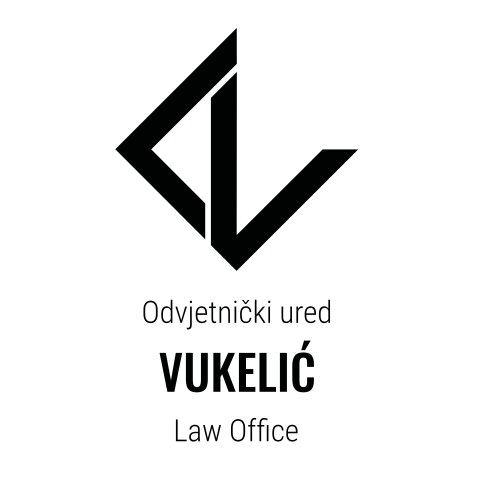Best Land Use & Zoning Lawyers in Croatia
Share your needs with us, get contacted by law firms.
Free. Takes 2 min.
Free Guide to Hiring a Real Estate Lawyer
Or refine your search by selecting a city:
List of the best lawyers in Croatia
About Land Use & Zoning Law in Croatia
Land Use and Zoning Law in Croatia is a crucial aspect of urban planning and development. These regulations govern how land can be utilized in specific areas to ensure orderly development, environmental protection, and the efficient use of resources. The primary goal is to create a balance between urban growth and sustainability. This legal framework includes guidelines on residential, commercial, agricultural, and industrial land use, and it is designed to promote economic development while safeguarding community interests.
Why You May Need a Lawyer
There are numerous situations where you might require legal assistance in the field of land use and zoning in Croatia. Individuals and businesses might engage a lawyer to navigate complex zoning laws when planning to purchase land, develop property, or change the use of existing structures. Legal advice is often necessary to ensure compliance with local zoning requirements, secure necessary permits, resolve disputes with neighboring properties, and appeal zoning decisions. Additionally, lawyers can help in drafting, reviewing, and negotiating contracts related to land development projects.
Local Laws Overview
The key aspects of local laws relevant to land use and zoning in Croatia comprise several regulatory frameworks. These include the Physical Planning Act, which governs the criteria for land development and ensures compliance with national and regional development strategies. Zoning regulations define the permitted uses of land and often include restrictions based on environmental protection laws. Municipalities in Croatia hold the authority to adopt detailed urban plans that reflect the national guidelines while catering to local needs. For any land use or development, securing necessary permits and adhering to the designated use outlined in these urban plans is mandatory.
Frequently Asked Questions
1. What is zoning?
Zoning refers to the process of dividing land into categories based on the prescribed use, such as residential, commercial, agricultural, or industrial. It dictates how properties in specific areas can be utilized.
2. Can zoning laws change?
Yes, zoning laws can change through amendments to urban plans or new regulations enacted by municipal authorities to accommodate shifts in development trends and community needs.
3. How can I find out the zoning designation for my property?
Zoning designations can be obtained from the local municipal office. Request the Urban Plan or visit the municipality's official website where such documents are often published.
4. What is the process to change a property's zoning designation?
Changing a property's zoning designation typically requires submitting a request for a zoning change to the local municipal authority, followed by public hearings and official approvals.
5. What permits are needed for new construction?
New constructions usually require building permits, which are only granted if the project complies with local zoning laws, urban plans, and building codes.
6. Are there any penalties for not following zoning regulations?
Yes, failing to comply with zoning regulations can lead to fines, legal action, or mandatory alterations or demolitions to bring the structure into compliance.
7. Can I appeal a zoning decision?
Yes, zoning decisions can typically be appealed through administrative procedures. Consulting a lawyer can help in preparing and presenting a strong appeal case.
8. How is agricultural land protected under zoning laws?
Agricultural lands have specific zoning categories that restrict their use to maintain agricultural productivity and prevent unsustainable urban sprawl.
9. What impact do environmental laws have on zoning?
Environmental laws play a significant role in shaping zoning regulations by imposing restrictions to protect natural resources, biodiversity, and reduce ecological footprints.
10. Are there incentives for certain types of developments?
The government may offer incentives for developments that meet specific criteria, such as sustainable designs, economic benefits, or contributions to public welfare, reflected in zoning or tax regulations.
Additional Resources
For further assistance, you can reach out to governmental institutions such as the Ministry of Physical Planning, Construction, and State Property. Additionally, local municipal offices can offer resources on zoning and urban planning documentation. Professional organizations, such as the Croatian Chamber of Architects and Engineers, or non-governmental organizations like Green Action, can provide valuable insights and networking opportunities with experts in land use and zoning.
Next Steps
If you need legal assistance in land use and zoning, it is advisable to consult a lawyer specializing in this field. Begin by researching law firms with expertise in property law, urban planning, and environmental regulations. Prepare all relevant documentation regarding your property or project, and schedule a consultation to discuss your situation and explore available legal options. Engaging a legal professional early in the process can prevent complications and ensure compliance with all applicable laws.
Lawzana helps you find the best lawyers and law firms in Croatia through a curated and pre-screened list of qualified legal professionals. Our platform offers rankings and detailed profiles of attorneys and law firms, allowing you to compare based on practice areas, including Land Use & Zoning, experience, and client feedback.
Each profile includes a description of the firm's areas of practice, client reviews, team members and partners, year of establishment, spoken languages, office locations, contact information, social media presence, and any published articles or resources. Most firms on our platform speak English and are experienced in both local and international legal matters.
Get a quote from top-rated law firms in Croatia — quickly, securely, and without unnecessary hassle.
Disclaimer:
The information provided on this page is for general informational purposes only and does not constitute legal advice. While we strive to ensure the accuracy and relevance of the content, legal information may change over time, and interpretations of the law can vary. You should always consult with a qualified legal professional for advice specific to your situation.
We disclaim all liability for actions taken or not taken based on the content of this page. If you believe any information is incorrect or outdated, please contact us, and we will review and update it where appropriate.
Browse land use & zoning law firms by city in Croatia
Refine your search by selecting a city.

















